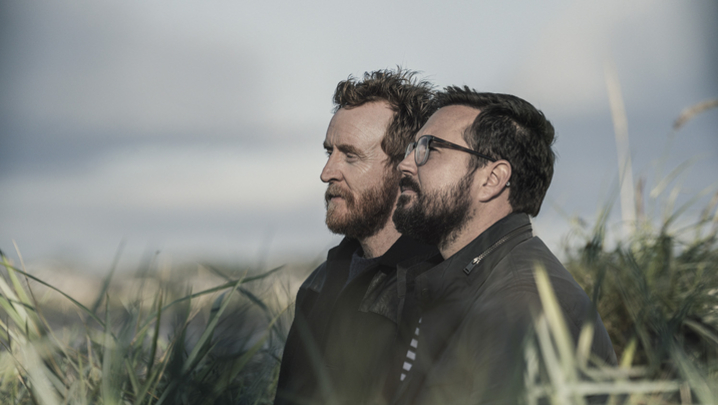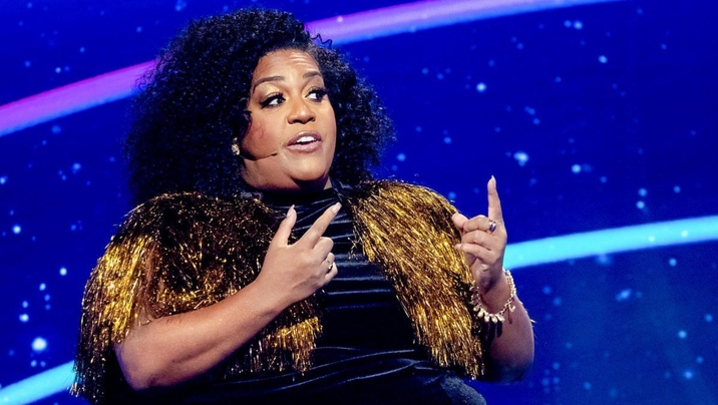James Purnell tells Miranda Sawyer how the BBC acted fast to transform its education service in lockdown – and why he’s a licence-fee fundamentalist
Few media initiatives during the pandemic have been as successful or as significant as the expansion of the BBC Bitesize education service. For parents attempting to homeschool their offspring while also working from home, having famous faces such as Marcus Rashford or David Attenborough helping children with their lessons was nothing less than a lifesaver.
No wonder the BBC’s director of radio and education, James Purnell, who helped spearhead the service, sounded so confident and relaxed during a recent RTS event, when he was interviewed by The Observer’s radio critic, Miranda Sawyer. “Amazingly, we provided an entirely new education service in lockdown – 10 hours of new TV a week, 150 lessons a week, which hit a chord with the public,” he said.
Bitesize Daily lessons attracted record numbers, as 3 million children tuned in on day one.
The need for a rapid response to the coronavirus crisis for once forced the BBC to ignore traditional processes and regulatory hurdles. Consequently, the expanded service was up and running at record speed. “We had an education service and lots of resources that we could suddenly point at this crisis. We were able to think about what the audience needed,” Purnell recalled. “We found the money quickly.
“In difficult circumstances we were able to move faster than we can some other times, because of that very clear intent. It was a moment of crisis that galvanised people. The commercial sector was brilliant in saying, ‘Fine, you can use our content’. We cut through a whole bunch of licensing and rights issues.
“I do think that there is a general lesson for the future in how we can move quickly.… We created a new education service in four weeks – maybe we can bring that to our business as usual.”
Time will tell if the BBC, so often criticised for being a management-heavy organisation that moves slowly, can be as fleet of foot in the future.
Purnell, who was once regarded as a future Director-General, not to mention leader of the Labour Party, acknowledged that Bitesize Daily’s success had helped to enhance the BBC’s reputation after what had been, in the months before lockdown, a politically trying time for the corporation.
He said: “Public service broadcasting is important in normal times but, in a moment of crisis, we are reminded why we need public service media.… The BBC has always been more than a broadcaster. We’ve always been there to make a difference to people and to society.”
Purnell denied that, under a government led by Boris Johnson and his influential advisor Dominic Cummings, the BBC was “in peril”. But he acknowledged that it faced “jeopardy”, particularly from the US streamers and tech companies: “There’s unlimited money. People can come into this market and say, ‘I’m going to have a go at TV and my minimum [programme] budget is a million quid’.
“Having said that, I think we’ve got a very clear plan [to deal with that] and I think it’s working, both with iPlayer, Sounds and podcasts. That consumption is broadly making up for the loss of linear consumption. People sometimes ask, ‘Isn’t there a tension between those two?’, but we absolutely feel the opposite.”
Purnell told Sawyer that he saw growing synergies between the traditional radio networks and the controversial BBC Sounds app, which hasn’t always pleased everyone.
He explained the BBC’s thinking: “Can we provide the kind of scheduled, lean-back experience that radio provides, but with the benefit of personalisation? We’re going to try to innovate what true digital radio can be within Sounds, a bit like we did with iPlayer, which grew a whole new sector of the market.
“Maybe we can do that with radio and provide a continuation of the radio habit for young people. If we can find a way of making radio more relevant to young people, can we make sure that in 10 or 20 years, linear radio is just as healthy as it is today?”
The pandemic had posed some tough technical and editorial challenges for BBC Radio. But despite 90% of staff working from home and growing competition from new stations such as Times Radio – and the unwillingness of younger listeners to tune in to radio rather than listen to podcasts, Spotify and other digital platforms – Purnell said that audience figures had held up.
He revealed that, at the beginning of the crisis, the BBC had considered closing some of its radio stations when it found it difficult to keep shows on air with many staff working from home and others, including high-profile presenters, reluctant to travel to work.
“At one point, we were planning to close down various stations but, because of the flexibility and ingenuity of our technical staff, we suddenly found that a lot could be done from home,” explained Purnell.
He declined to say which radio networks were earmarked for closure but implied that Radio 4 and Radio 2 were regarded as priorities to keep. “Obviously, we would prioritise stations that were providing information and those with the biggest audience.”
In the early days of lockdown, Radio 4 and Radio 5 Live’s popularity increased. Later, specialist music stations Radio 1Xtra, Radio 3 and Radio 6 Music benefited from people being stuck at home.
As for the present, he said, “Overall, we’re broadly stable but listening time is up compared with before lockdown.”
On the vexed question of finance – the corporation’s response to the pandemic, which included delaying the axing of free TV licences for all over-75s, has so far required it to plan an extra £125m of cuts – Purnell said that money was being redeployed to invest more in podcasts, bigger Radio 4 drama budgets and longer investigations.
“We have to be able to move our money because our audiences are moving and because there are new creative opportunities,” he stressed.
And quite how the pending licence-fee negotiations will pan out is anyone’s guess; a review of the level of the fee is due in 2022. But Purnell, culture secretary in Gordon Brown’s Government, described himself to Sawyer as a “licence-fee fundamentalist”. He added: “I think that, with every day that goes by, the licence fee is more justified. Look at all the issues people have with what information to trust, making content about our country, making programmes that people can see themselves reflected in.
“There’s hugely greater choice from streamers but that has not replaced the need for public service media. I think the licence fee, probably modernised, is a very good way of funding that.”
Another hot potato for the BBC is diversity, no more so than in recent weeks. Purnell admitted that, in the immediate aftermath of George Floyd’s murder, he had failed to comprehend the enormous impact of the crime on so many people: “I followed it as a news story, but I simply hadn’t understood until Lorna Clarke [BBC Radio’s controller of pop] texted me that this was something that was affecting people viscerally.
“They were feeling it themselves. It was because most parts of BBC Radio are naturally diverse that they got to that issue fast; and they created amazing content the next week.”
However, he told the RTS, BBC Radio’s record on diversity was patchy: “We do know from Ofcom’s research that radio is less diverse than TV and we’ve got further to go than TV.”
Report by Steve Clarke. ‘In Conversation with James Purnell’ was an RTS event held on 30 July. The interviewer was Miranda Sawyer, radio critic of The Observer. The session was produced by Sue Robertson and Martin Stott.






